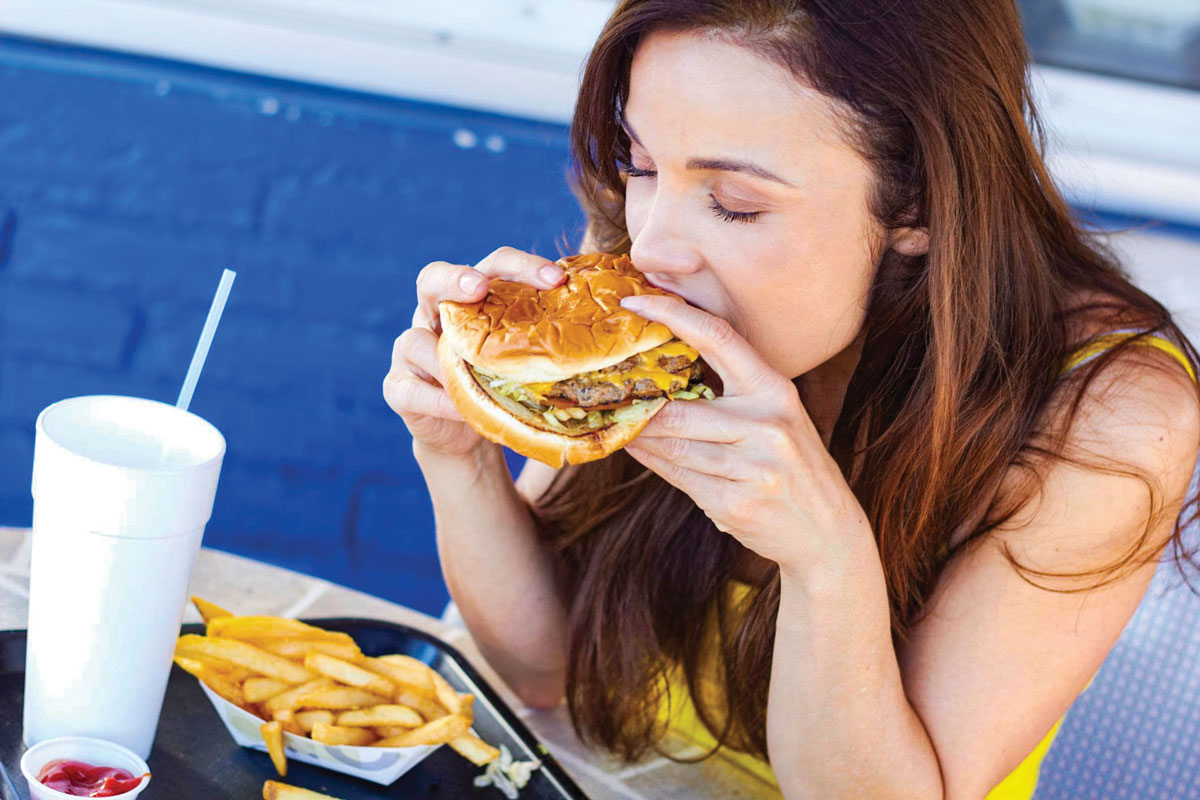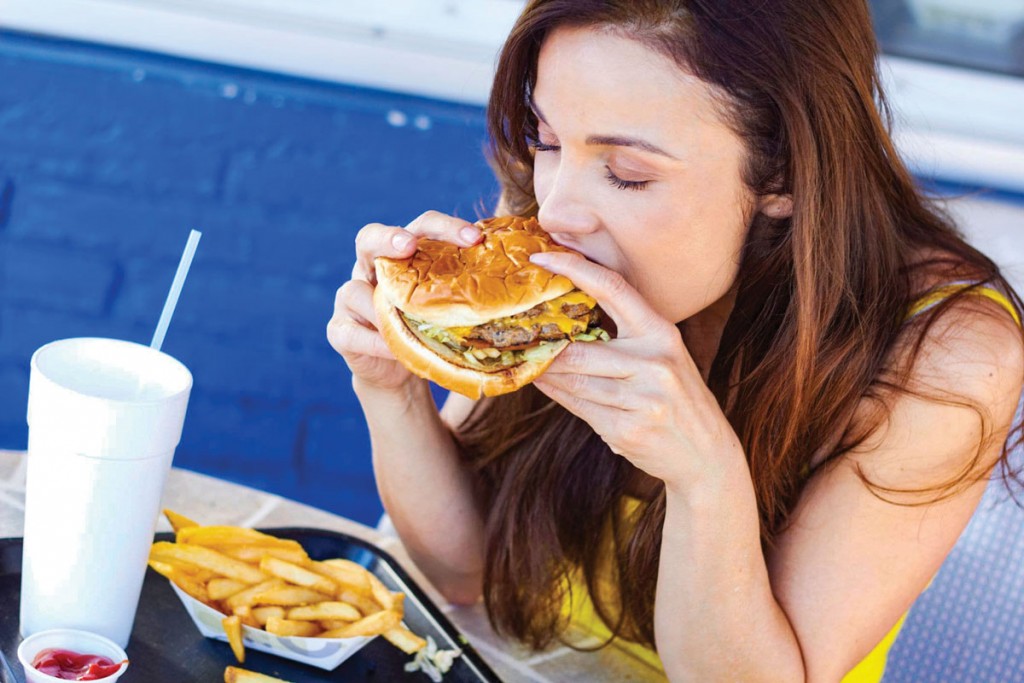
This is your alarm clock. Wake up. A joint study by WHO and ICRIER (the Indian Council for Research on International Economic Relations) warns India of The Big O — an ‘obesity epidemic’ — after a decade-long study in the sales of ultra-processed foods in our country.
While sales plummeted during the Covid-19 pandemic lockdown, there has been a sharp V-shaped recovery since. Evidently, sugared and salted processed foods come with attached concerns of diabetes and hypertension. Chocolates and other sugar confectionaries are expected to lead and dominate the demand. At their heels will be salty snacks and ready-made convenience foods.
The fact is: even if consumption is pretty low compared to home-cooked meals, we’ve got to ensure that the upward trend is curtailed both by policy interventions and even more important, through self-control. Apparently, there is already an alarming increase in patients suffering from fatty liver and intestinal diseases.
The WHO-ICRIER study is further underscored by on-the-ground findings of the Tata Memorial Hospital in Mumbai. This centre has witnessed a 300 per cent rise in admissions of people with gastrointestinal cancer in the same period — 2010 to 2022. ‘It’s due to the rise in urbanisation and lifestyle changes,’ says Dr Shailesh Shrikhande, its deputy director and head of cancer surgery.
Hot potato
Have a long hard look at your shopping list, please, dear readers. Chips take the cake as a more dangerous snack for diabetics. Fried foods beat sweet stuff in their potential for diabetes. A health fact that is not so widely known. ‘Tumhaare moonh may ghee-shakkar’ is fine as a metaphor but a bad combo for good health. Ahmedabad is recognised as the world capital of diabetes — Gujaratis top the list in the sweet-fry duo. Likewise, Lahore is the world capital for hypertension and heart-related issues — the flip side of its famous red-meat delicacies. Both sweets and red meat are, perhaps, themes for future columns. In this one, we serve them as starters. A great way to ward off diabetes or ensure your sugar level does not rise, is to have a thin vegetable soup every night as dinner. It nourishes, satiates and is easy on the metabolism. In England, doctors recommend it to people who’ve tested their blood-sugar and are pre-diabetic.
Just two minutes
The splitting of the joint family, the husband and wife both working (likewise a single parent) are among the many factors that have changed our society. Under these new circumstances where both livelihood and lifestyle link, eating out, ordering in or eating/cooking canned and packaged food has been the immediate outcome from increased incomes and reduced cooking time and space. The two-minute noodles come with enhanced risks. Order home-cooked meals from an enterprising individual in the neighborhood. Trim the fat bill — it trims the fat in our tissues.
‘But processed foods are so easy’ you might protest. Sure, but they come laden with unhealthy baggage such as excess salt, sugar, fats, oil, preservatives, taste-enhancing additives, artificial colours, flavours and sweeteners. It’s stuff your body can’t handle. It’s also revealing that the old Indian propensity stays intact. We still hear admiring remarks about how prosperous somebody is because they’ve put on a lot of weight! Under these circumstances, something has got to give. Good health is literally the biggest loser and the first casualty. Moral: Money makes the world go round. And most often, the human body too.
Francine the fantastic
There’s another kind of ‘just two minutes’ that’s healthier. To get there, here’s an inspiring story about Francine who came from a family that had multiple neurological degenerative diseases like Parkinson’s. She herself was diagnosed with muscular dystrophy. It meant she could just about lift her arms over head three times — no more. And her legs gave way when she’d barely walked 50 feet. Mentally and emotionally, she swung between optimism and lethargic resignation.
Francine’s life changed when she met Dr Rudolph Ballentine, psychiatrist and holistic healer, and signed up for his residential treatment programme. Message No. 1: When the optimistic feeling surges, get started on something healing instantly to get out of inertia. Use these two minutes of optimism to contact a fitness instructor or physiotherapist according to your needs, and consult your doctor for a sensible diet. Create a personalised routine. In doing so, you choose fitness over illness.
Back to Francine; she found that the programme necessitated sitting through several lectures daily. The idea was to help patients get a handle on nutrition, cleansing, exercise to lay a firm foundation for good health. But, frankly, Francine found it tedious. She complained to Dr Ballentine, ‘I just can’t stay still that long. I feel like I have to jump up and run out of the room.’ She felt stifled. She wanted to get up and go. Message No.2: Don’t ever stifle your be-active impulses. Because impulses connect our brain to muscle. It sparks the vibration between thought and action. When we give in to this impulse every time, we stave off helplessness and depression.
Dr Ballentine was bemused. Here was a woman who could barely walk a few steps and she wanted to run! He sums up, ‘I was intrigued with the possibility of connecting this energy for movement with the weakened limbs.’ He told her to go ahead and do it. His instant diagnosis and its application were bang on. When he next met her, she told him, she had run out of the class and ‘I climbed half a mile to the top of the hill! And I was hardly tired!’
Move, move, move!
Exercise is all important because it helps us regain our natural capacity and skill for free and spontaneous self-expression. It’s a huge blessing to have a body that responds smoothly and instantly to one’s intention. When your mind says, ‘Let’s get out of here,’ get up, get out and take your body and spirited self for a brisk walk or run or a biking expedition around the block. If you need a walking stick, pick it up and move. At the office, have walking slip-on shoes handy. At home, wear a tracksuit or comfortable outdoor clothes so that you don’t have to spend even a minute to change for the outdoors.
Beginning a new inning
You could gently move into a more active life, suggests an experiment conducted by the Johns Hopkins University. A mere 2,300 steps a day are good for heart and blood vessels; just 4,000 steps reduce the risk of premature death. As in cricket, so in life. A single step or run (pun intended) can be the beginning of a long successful inning.
The writers are authors of Fitness for Life and Simply Spiritual – You Are Naturally Divine and teachers of the Fitness for Life programme







